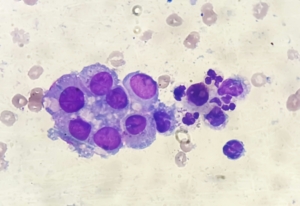
Why biotech needs Europe and Europe needs biotech
It's getting a little boring listening to conversations about the 2014-2020 budget. As citizens, we're subjected to endless national bickering and point-scoring as national leaders look to secure their own positions through sounding tough on Europe', as if the EU was a strange alien beast designed to steal their money and straighten all their bananas.
As a fugitive from the UK, I am particularly embarrassed, and can’t wait for them to have a referendum on in/out. At least the Brits will finally shut up afterwards.
But I digress. What people overlook is the impact of a big European freeze on national development. Europe has enabled the massive development of regions that would have been unlikely to see many benefits under purely national direction. This has created the infrastructure through which science is being delivered, and a consequence of reducing this now will be to throw away much of the progress and investment we’ve made to date.
Support on the Horizon
When not talking about biotech, I talk about cluster development (that’s right I’m such a blast at parties) and right now we are witnessing a battle for survival. These precious structures are nurseries for economic returns on research. After 25 years of investment, they are creating SMEs that are coming through on promises, making the transition from discovery to clinical phases for new drugs exactly what investment was intended to deliver.
However the market is moving further away from SMEs. The gap where they need support gets wider every year. So if investors won’t come unless you have a Phase III product, how do you get there? This is where the critical support from Horizon 2020 comes in. It must expand its reach beyond FP7, with cluster support, PPPs, later-stage trial funding, infrastructure creation, skills development and a relentless drive to support the commercialisation of great science.
Savouring the fruits of innovation
If the funding falls away from Horizon 2020 as national governments reduce their input to Europe, then the countries themselves will pay the price. As national austerity reduces innovation support, Europe has in many places become the only source of assistance both financially and strategically when creating long-term plans as part of an international map. Kill it, and those clusters and regions that are at the cusp of economic delivery from biotechnology will shrivel, and the billions of euros invested thus far will be wasted.
Right now, Europe has an opportunity to seize the market. It would be a crime if short-term national political games prevented the strengths of 27 countries from finally delivering substantial economic returns in biotech.


 Unsplash+
Unsplash+
